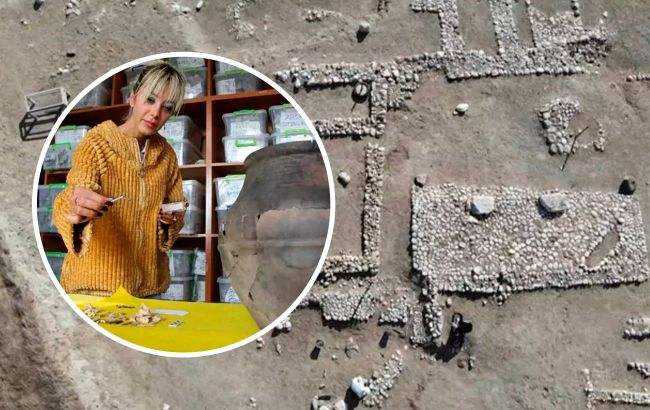Archaeologists unearth 2500-year-old Persian meal in Türkiye
 Archaeologists have found pots with food in Türkiye that is 2500 years old (Collage RBC-Ukraine)
Archaeologists have found pots with food in Türkiye that is 2500 years old (Collage RBC-Ukraine)
During archaeological excavations at Oluz Höyük (Oluz Tumulus), layers of settlements dating back to 4500 years BC were discovered. In these layers, remnants of a Persian period palace kitchen were preserved, including pots containing food remnants that are 2500 years old.
RBC-Ukraine reveals the specific details about the food found in these pots.
The fragments found in the pots consisted of bones and cereal grains. In clay pots like these, a dish known today as "keşkek" was traditionally prepared with these ingredients.
"It closely resembles the beloved Anatolian dish keşkek. The shape of the pot we found and the ingredients inside closely match the keşkek culture of today," explained Prof. Dr. Şevket Dönmez, the head of the excavation and a professor of Protohistory and Near Eastern Archaeology at Istanbul University.
During archaeological excavations, researchers discovered a monumental entrance and a kitchen in a Persian palace. There, they found numerous animal bones, grain remnants, and grinding stones.
The 30-centimeter pots were used to prepare food for a large number of people.

 Archaeologists found pots with a meal that is 2500 years old (screenshot)
Archaeologists found pots with a meal that is 2500 years old (screenshot)
"In the newly found cooking pot, we discovered animal bones belonging to sheep and cereal remnants. We believe these could be the remnants of a dish similar to Anatolian stew or keşkek"," added Prof. Dr. Şevket Dönmez.

 Archaeologists found pots with a meal that is 2500 years old (screenshot)
Archaeologists found pots with a meal that is 2500 years old (screenshot)
According to the scientists, at the excavation site, they also discovered a Persian road and complexes dating back at least 2500 years. Therefore, it's likely that the meal remnants are just as old.
Archaeological excavations at Oluz Höyük, which is located about 25 km from Amasya, have been ongoing for nearly 17 years. The findings help uncover the history of the central region and the history of the Persians.
By the way, we previously reported that archaeologists found an entire collection of women's Bronze Age jewelry.

